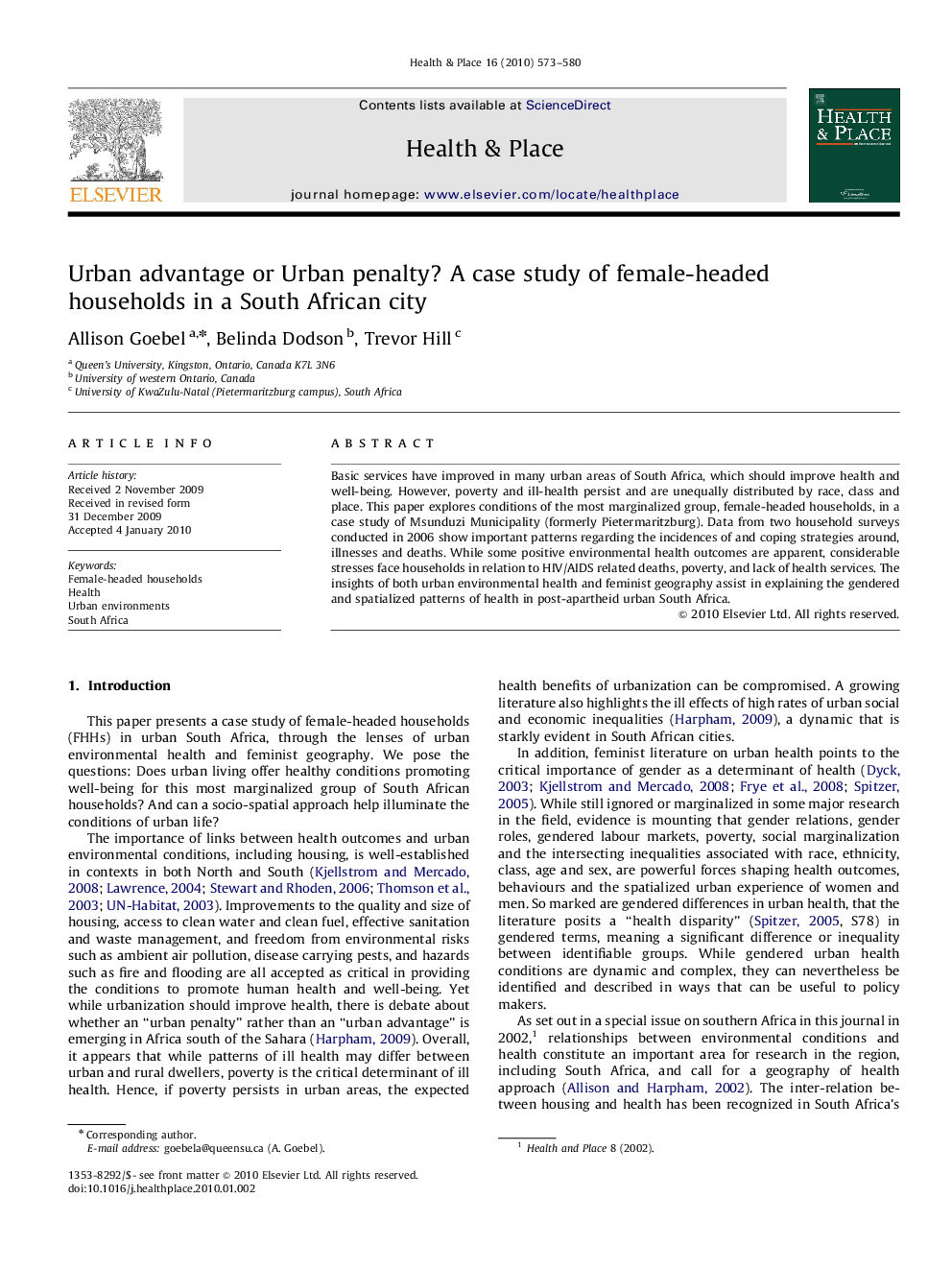| Article ID | Journal | Published Year | Pages | File Type |
|---|---|---|---|---|
| 10503043 | Health & Place | 2010 | 8 Pages |
Abstract
Basic services have improved in many urban areas of South Africa, which should improve health and well-being. However, poverty and ill-health persist and are unequally distributed by race, class and place. This paper explores conditions of the most marginalized group, female-headed households, in a case study of Msunduzi Municipality (formerly Pietermaritzburg). Data from two household surveys conducted in 2006 show important patterns regarding the incidences of and coping strategies around, illnesses and deaths. While some positive environmental health outcomes are apparent, considerable stresses face households in relation to HIV/AIDS related deaths, poverty, and lack of health services. The insights of both urban environmental health and feminist geography assist in explaining the gendered and spatialized patterns of health in post-apartheid urban South Africa.
Related Topics
Health Sciences
Medicine and Dentistry
Public Health and Health Policy
Authors
Allison Goebel, Belinda Dodson, Trevor Hill,
